
By Muriel Cooper Photos Yanni
Garry Cowled won his first culinary accolade at eight when he made and decorated a cake for a prize at a school Red Cross fundraiser in his hometown near Cootamundra. Since then, Garry has owned his own restaurants and food businesses and been Chef for many prestigious hotels and restaurants, including the Sofitel on Collins in Melbourne (previously The Wentworth), Leonda, and the spectacular Chateau Lake Louise in the Canadian Rockies. Garry represented Australia in the world-renowned Culinary Olympics in Germany and now has his own cooking school, The Olive Tree, in Frankston.
Garry learned to cook in his mother’s country kitchen, with a wood stove and produce from five acres of land, including vegetables, chickens, ducks, cows, and sheep. ‘We rarely had anything out of a packet or a can,’ Garry says. ‘Everything was fresh.’ Garry’s mother is ninety-six and still bakes every day. She boasts that if she saw visitors arriving, she would have scones in the oven by the time they got to the back door.
Garry’s interest in cooking as a profession started in secondary school. ‘I read as much information as I could,’ Garry says, ‘but the process in those days meant earning very little money as an apprentice, not enough to live away from home, so I worked in a bank and studied accounting, something that came in handy as executive chef at the Sofitel with two hundred staff in the kitchens. The best cook doesn’t always necessarily make the best chef because you have to manage budgets,’ Garry explains. Finally, he was able to move to Canberra to do his apprenticeship at the Canberra Rex Hotel, but only because friends allowed him to sleep on their son’s bedroom floor until he ‘got on his feet’.
Garry’s first Head Chef position was at The Canberra Club in 1976 after returning from Canada and Europe – male members only at the time – but Garry says that things were changing to include women in the late seventies.
Garry was running his own restaurant, The Ark, in Canberra, when, in 1980, he was accepted into the Australian team for the Culinary Olympics. The team had to fund themselves, and Garry travelled to Melbourne every week, sometimes twice for training. While the US had $500,000 in funding and a major sponsor, the Aussie team raised money by holding fundraising dinners, selling bumper stickers, T-shirts, and pens. It all paid off, and they won gold in ‘The Restaurant of Nations’.
Their gold medal-winning menu for 400 diners?
Lemon-scented gum smoked rack of Australian lamb.
Barramundi Karumba, a disc of grilled barramundi with a skewer of Australian king prawns, an avocado fan and hollandaise sauce.
The chef that trained Garry, the late Geza Slezak, originally came from Frankfurt and travelled there with the team, using his local knowledge to help them source ingredients and transporting the team around the city.
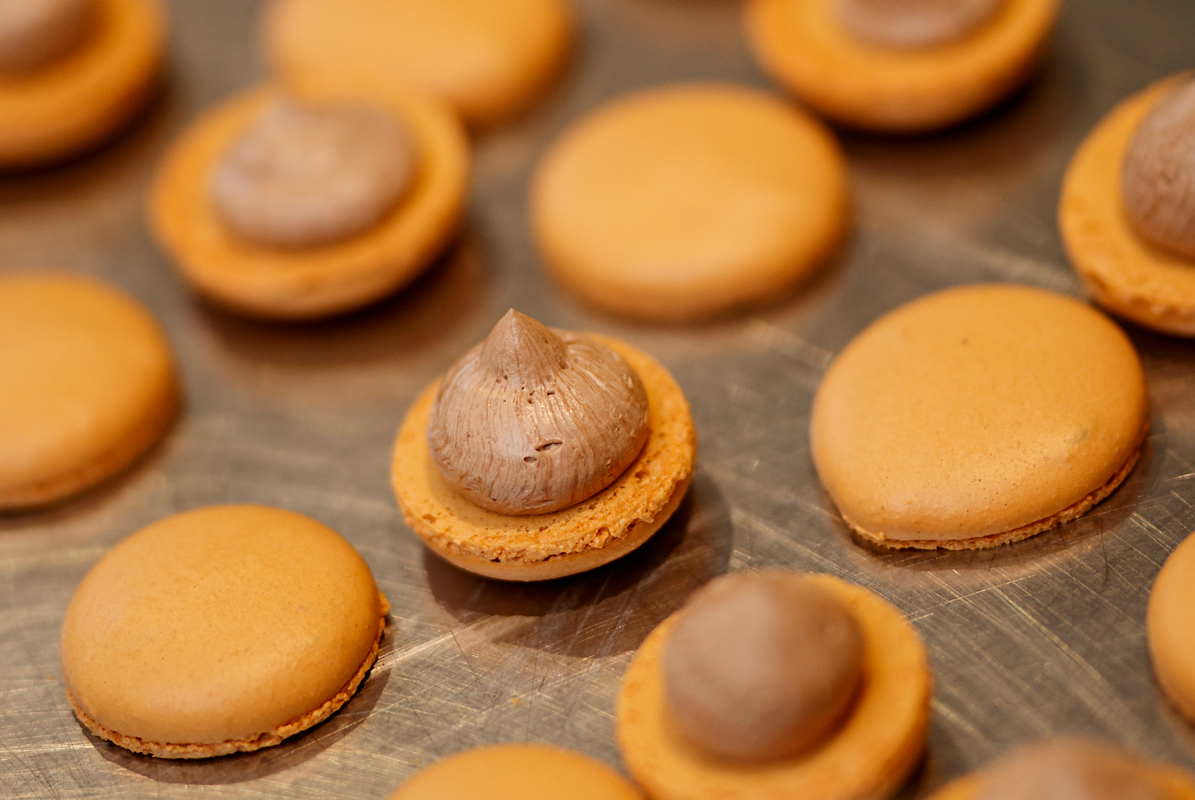
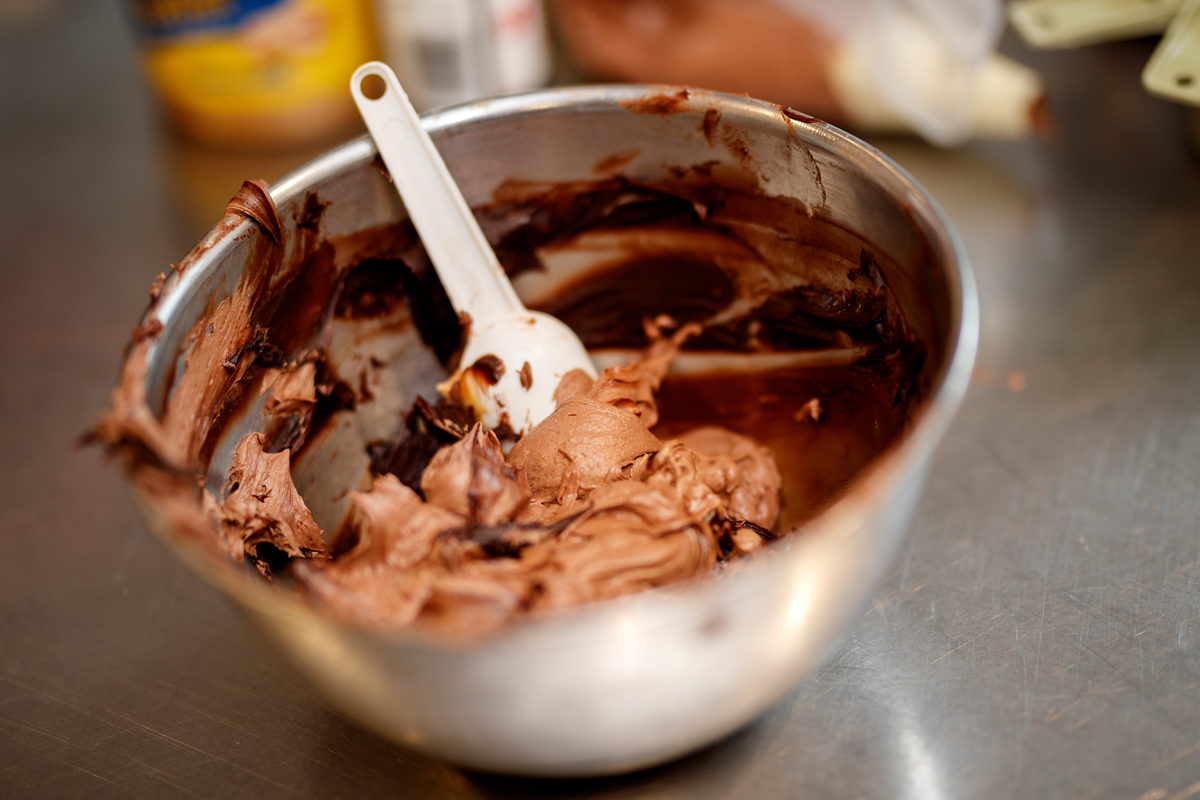
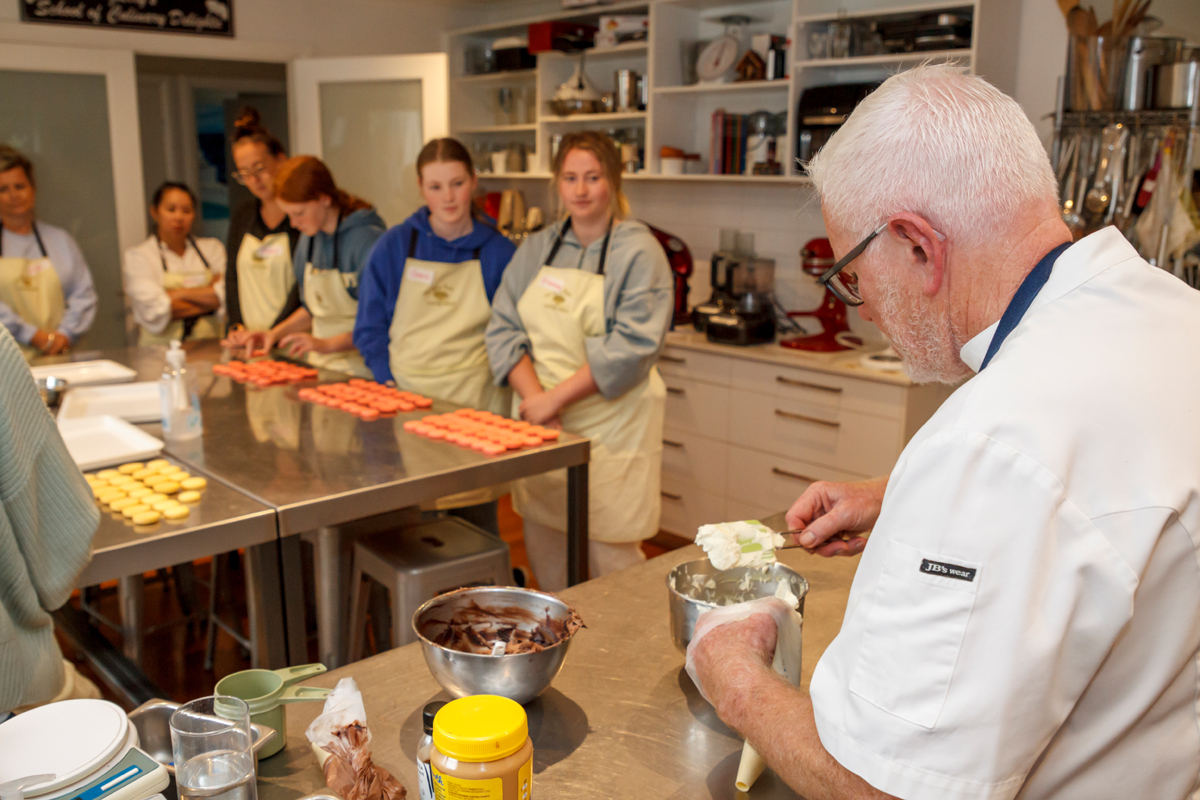
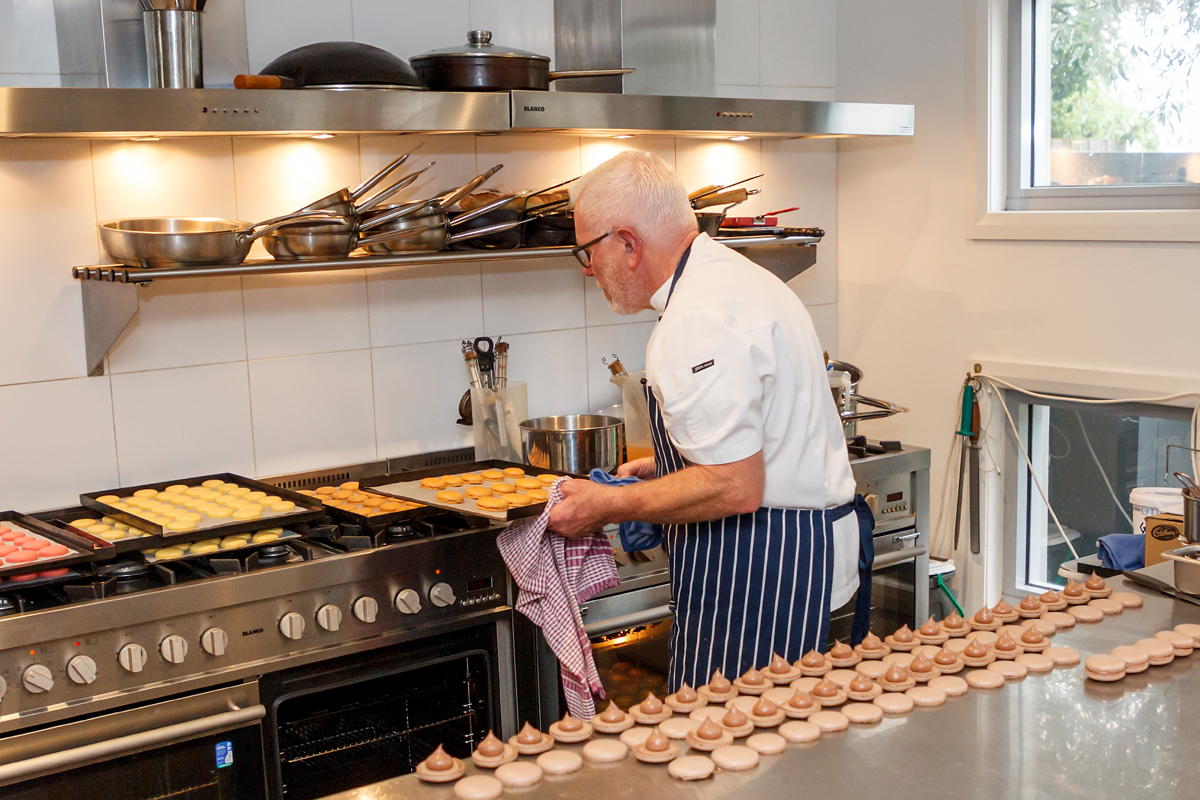
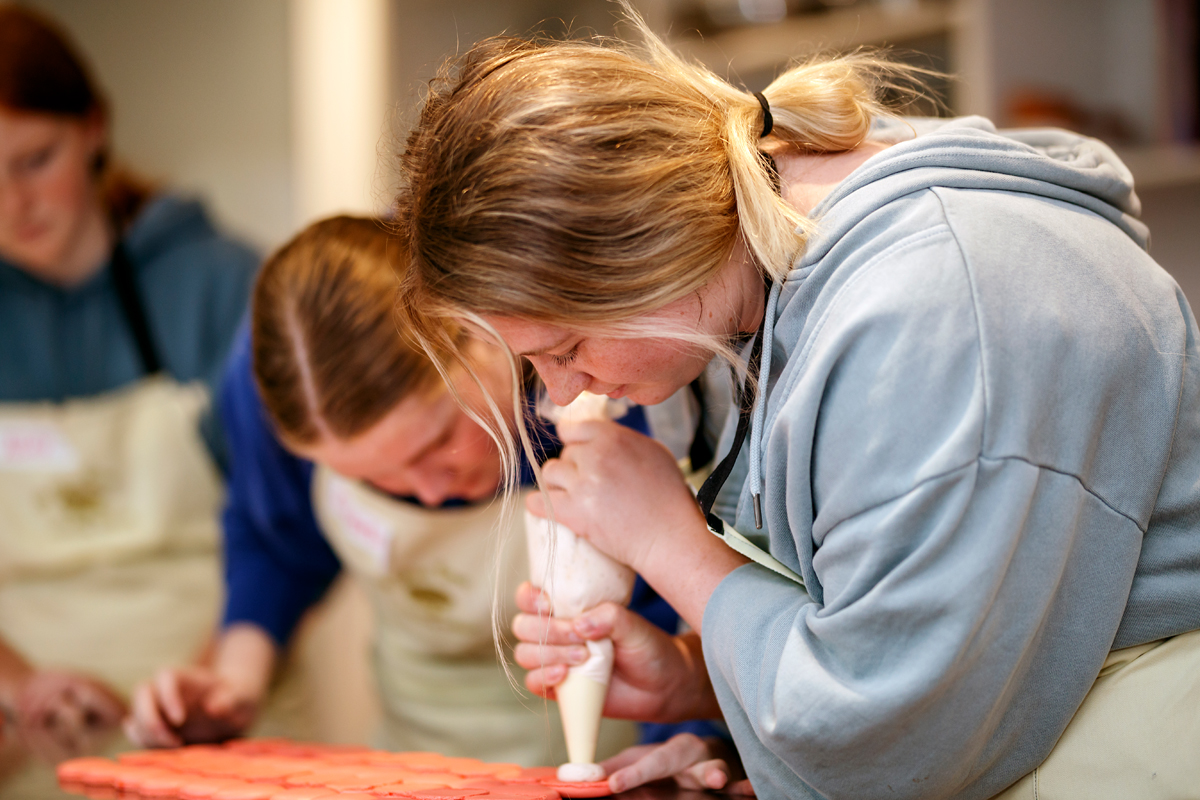
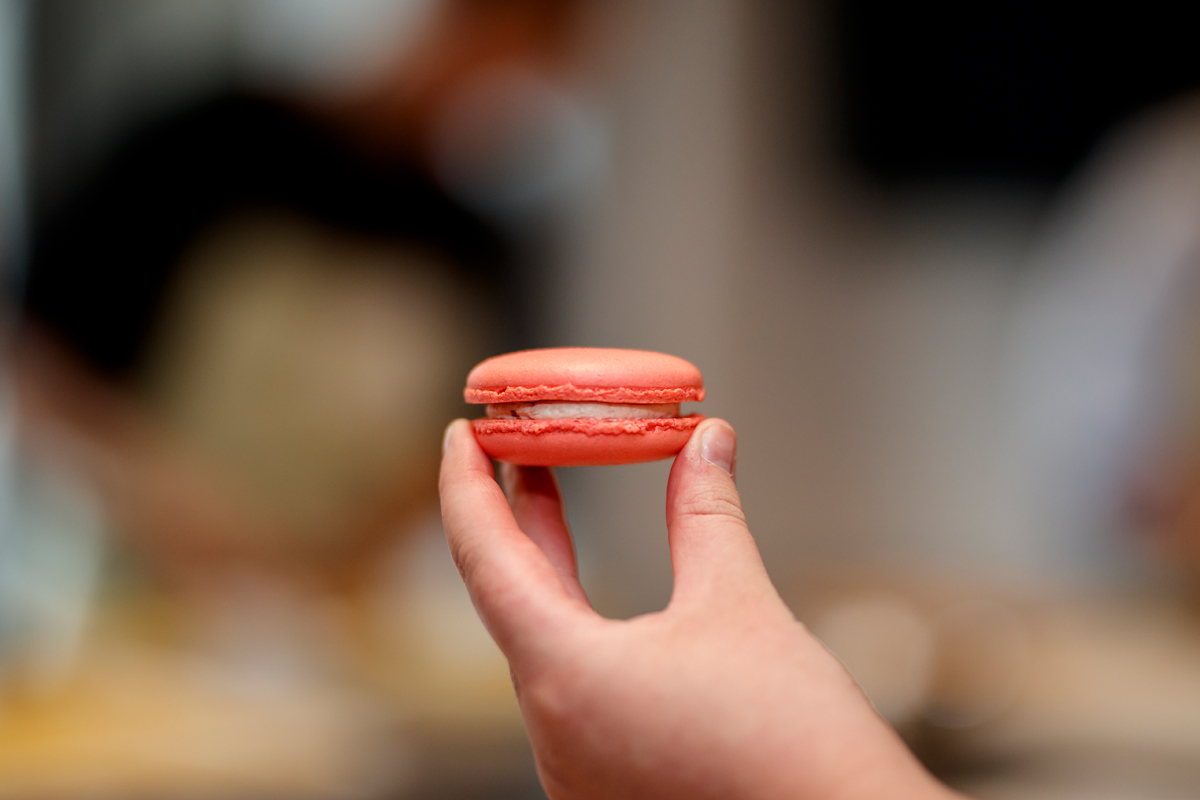
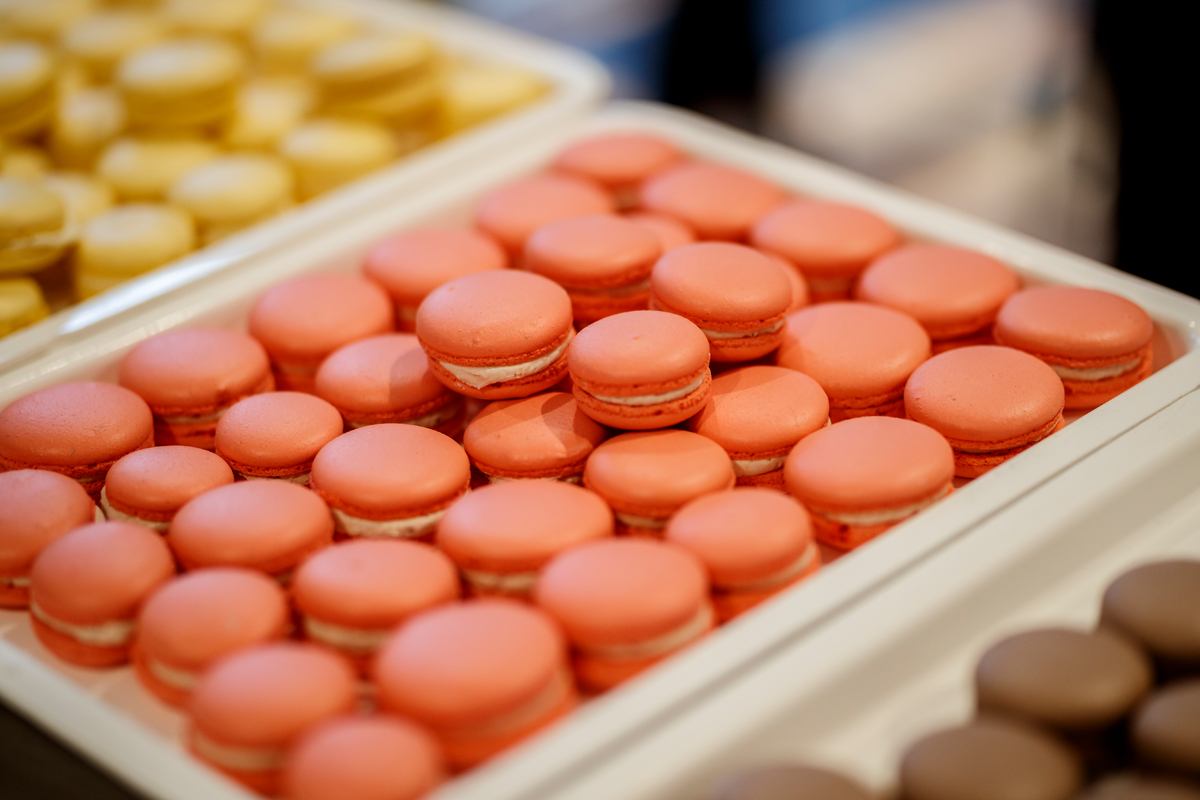
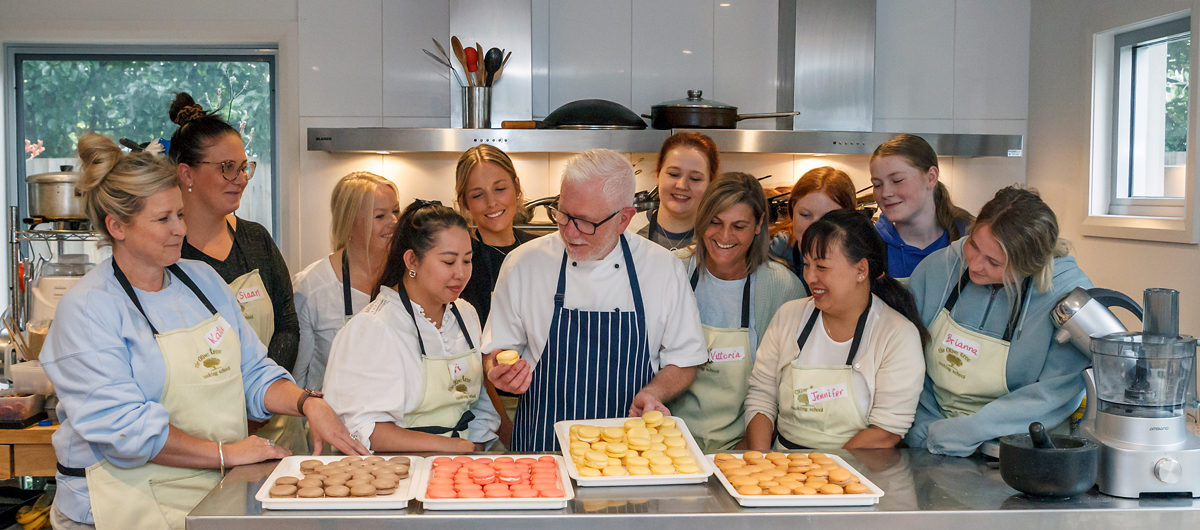
Garry has won fifty awards, 40 of them gold, but gave up competing to spend more time with his wife Ann and their five children, and now their twelve grandchildren.
Nothing delights Garry more than passing on his knowledge to others, and he was a teacher at TAFE for six years on the Peninsula. Garry disapproves of the devaluing of the TAFE system and says the current training method often fails to teach apprentices basic skills; not something that’s missing from Garry’s cooking classes today.
One of Garry’s most popular classes is Macaroons, the legendary sweet treat. Garry is always happy to hand out his secrets for the elusive perfect macaroon.
‘You only need to get one thing wrong, and they may not turn out as nicely as you’d like,’ Garry says. And the one thing? ‘You have two mixtures: almond meal, sugar and egg whites, the other meringue. You have to combine the two, and that’s the most difficult part. It needs to flow just right. One or two stirs too many, and it’s gone too far.
‘We make our macaroons with Italian meringue so a good thermometer is also essential, one or two degrees out can also spoil the macaroons.’
And the last secret? ‘Separate the eggs the day before and leave the whites at room temperature to dehydrate some of the moisture,’ Garry says.
‘I’m happy to give people knowledge to help them get a good product. That’s part of the joy of cooking. I’m proud that some of my students have gone on to win the Nestle Golden Chef’s Hat’, the highest National Award for Apprentice Cooks.
Garry’s favourite macaroon flavour is lemon. ‘Lemon is the most versatile flavour,’ he says. ‘I use it in almost everything, especially the zest.’ Garry has several lemon trees and makes his own curd.
He says the perfect wine to go with the perfect macaroon is an Australian bubbly, either methode champenoise or prosecco.
The most unusual macaroon Garry has been asked to make is for a cocktail party of 50 people. Garry made a duck liver parfait macaroon with cranberry jelly. Exquisite.
Garry has taught over 7,500 people to make the perfect macaroon in his school, and a participant is never far away. Recently a passer-by stopped to talk to Garry about his caravan when he looked at Garry and said, ‘You’re that guy who makes those fancy things.’
‘You mean macaroons,’ Garry said. ‘Yes, my wife and daughter did your course.’
This year marks Garry’s 53rd year in hospitality, and he doesn’t plan on retiring. His classes cover basic cooking skills, macaroons, cupcakes, pasta and gnocchi and tapas, and you can tailor your own course with friends.
You’ll find The Olive Tree Cooking School on the Nepean Highway in Frankston.





